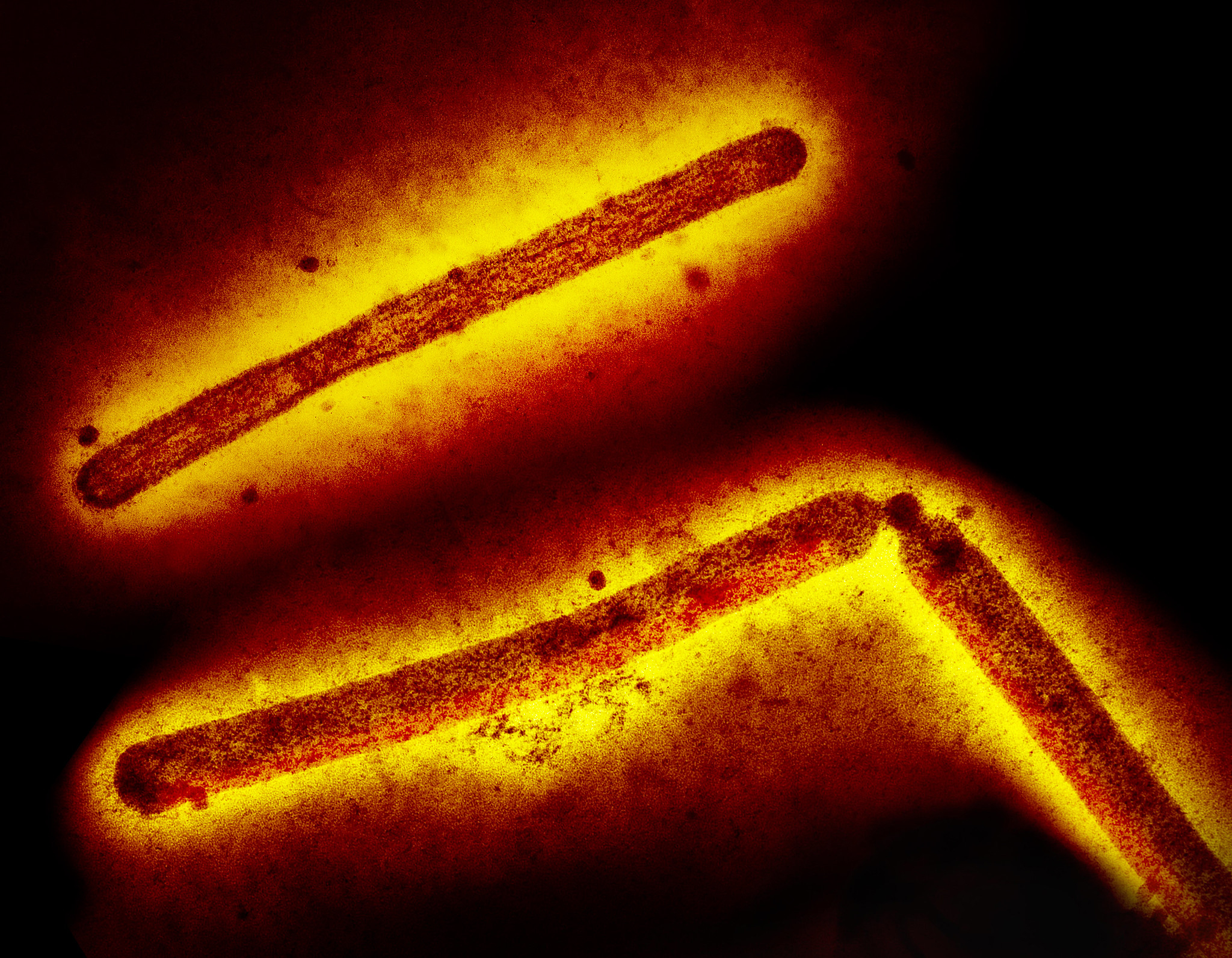Science
. 2025 Jan 31;387(6733):534-541.
doi: 10.1126/science.ado6481. Epub 2025 Jan 30. Pre-exposure antibody prophylaxis protects macaques from severe influenza
Masaru Kanekiyo 1 , Rebecca A Gillespie 1 , Kristine Cooper 2 , Vanessa Guerra Canedo 1 , Priscila M S Castanha 3 , Amarendra Pegu 1 , Eun Sung Yang 1 , Luke Treaster 4 , Gabin Yun 4 , Megan Wallace 3 , Gwenddolen Kettenburg 3 , Connor Williams 5 , Jeneveve Lundy 5 , Stacey Barrick 5 , Katherine O'Malley 5 , Morgan Midgett 5 , Michelle M Martí 3 , Hasitha Chavva 3 , Jacqueline Corry 3 , Benjamin R Treat 3 , Abby Lipinski 5 , Lucia Ortiz Batsche 6 , Adrian Creanga 1 , Isabella Ritter 7 , Reagan Walker 7 , Emily Olsen 3 5 , Amanda Laughlin 5 , Daniel R Perez 6 , John R Mascola 1 , Eli A Boritz 1 , Yueh-Ming Loo 8 , Wade Blair 8 , Mark Esser 8 , Barney S Graham 1 , Douglas S Reed # 5 9 , Simon M Barratt-Boyes # 3 9
Affiliations
Influenza virus pandemics and seasonal epidemics have claimed countless lives. Recurrent zoonotic spillovers of influenza viruses with pandemic potential underscore the need for effective countermeasures. In this study, we show that pre-exposure prophylaxis with broadly neutralizing antibody (bnAb) MEDI8852 is highly effective in protecting cynomolgus macaques from severe disease caused by aerosolized highly pathogenic avian influenza H5N1 virus infection. Protection was antibody dose-dependent yet independent of Fc-mediated effector functions at the dose tested. Macaques receiving MEDI8852 at 10 milligrams per kilogram or higher had negligible impairment of respiratory function after infection, whereas control animals were not protected from severe disease and fatality. Given the breadth of MEDI8852 and other bnAbs, we anticipate that protection from unforeseen pandemic influenza A viruses is achievable.
. 2025 Jan 31;387(6733):534-541.
doi: 10.1126/science.ado6481. Epub 2025 Jan 30. Pre-exposure antibody prophylaxis protects macaques from severe influenza
Masaru Kanekiyo 1 , Rebecca A Gillespie 1 , Kristine Cooper 2 , Vanessa Guerra Canedo 1 , Priscila M S Castanha 3 , Amarendra Pegu 1 , Eun Sung Yang 1 , Luke Treaster 4 , Gabin Yun 4 , Megan Wallace 3 , Gwenddolen Kettenburg 3 , Connor Williams 5 , Jeneveve Lundy 5 , Stacey Barrick 5 , Katherine O'Malley 5 , Morgan Midgett 5 , Michelle M Martí 3 , Hasitha Chavva 3 , Jacqueline Corry 3 , Benjamin R Treat 3 , Abby Lipinski 5 , Lucia Ortiz Batsche 6 , Adrian Creanga 1 , Isabella Ritter 7 , Reagan Walker 7 , Emily Olsen 3 5 , Amanda Laughlin 5 , Daniel R Perez 6 , John R Mascola 1 , Eli A Boritz 1 , Yueh-Ming Loo 8 , Wade Blair 8 , Mark Esser 8 , Barney S Graham 1 , Douglas S Reed # 5 9 , Simon M Barratt-Boyes # 3 9
Affiliations
- PMID: 39883776
- DOI: 10.1126/science.ado6481
Influenza virus pandemics and seasonal epidemics have claimed countless lives. Recurrent zoonotic spillovers of influenza viruses with pandemic potential underscore the need for effective countermeasures. In this study, we show that pre-exposure prophylaxis with broadly neutralizing antibody (bnAb) MEDI8852 is highly effective in protecting cynomolgus macaques from severe disease caused by aerosolized highly pathogenic avian influenza H5N1 virus infection. Protection was antibody dose-dependent yet independent of Fc-mediated effector functions at the dose tested. Macaques receiving MEDI8852 at 10 milligrams per kilogram or higher had negligible impairment of respiratory function after infection, whereas control animals were not protected from severe disease and fatality. Given the breadth of MEDI8852 and other bnAbs, we anticipate that protection from unforeseen pandemic influenza A viruses is achievable.


Comment